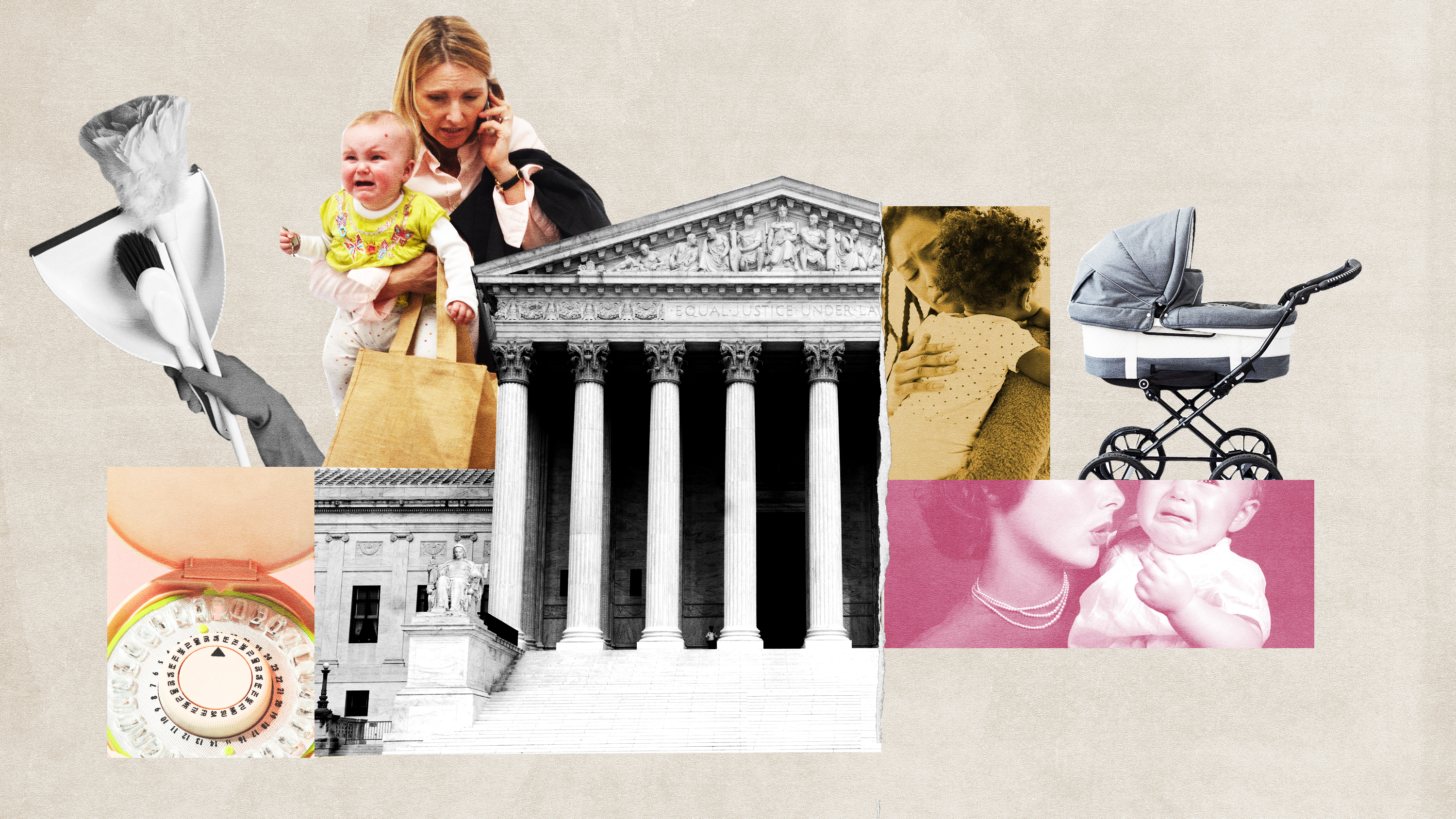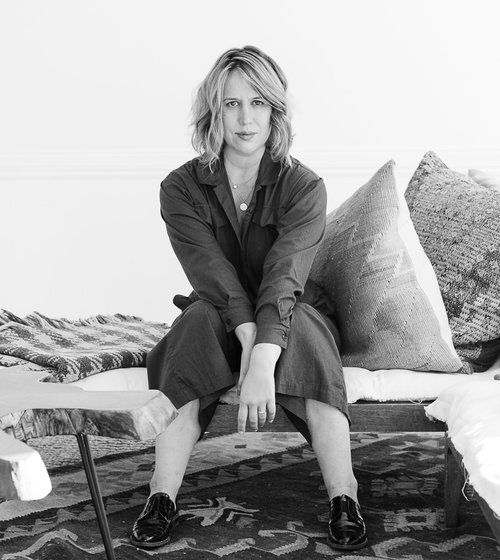The Secret to Having “It All”? A Society That Actually Supports Women
When asked how I \201chave it all,\201d I often cite my own hard work. But the truth is I had access to certain rights and privileges that are now under more attack than ever.

Because I am a mother who has a career outside of the home, I get asked on a fairly regular basis how I manage to do “it all.” This vague blanket term “it all” usually refers to having small children while also having a fairly successful job that I seem to enjoy quite a bit.
No one ever asks my husband that question, but that’s for an entirely different essay.
There are stock answers I have always given to the question of how I have it all. I humbly respond that it’s not easy, that I work my ass off, that I don’t sleep that much, that I often prioritize family over work or my marriage over self-care. It’s grit! It’s determination!
But that’s not what it is. We rarely talk about the truth of how women can be mothers and have careers because we have been told many parts of that truth are shameful.
But here is the truth. I can do what I do today—write books and make podcasts and raise children all at the same time—because of three very important things: because of access to legal and safe abortion, because of easily available contraception, and because I can afford to spend a large portion of my income on childcare. I don’t know why I haven’t shouted all of this from the rooftops before. I suppose I did feel slightly ashamed, as though grit, determination, and a lack of sleep were more socially acceptable than an infrastructure that prioritizes women’s needs. But we have to be honest about these things, now more than ever. If we keep silent about how these rights and privileges lead to success, if we feel like they are shameful to mention, then they will never be prioritized by the rest of society.
I can do what I do today because, when I was 16, I was able to safely access an abortion that allowed me the freedom to go to college and graduate school and start my career without being hindered by a child that I was not ready to support emotionally or financially. I can do what I do now because my family doctor, the man who had been my pediatrician since I was five, walked me through where to go to get my abortion and helped me make an appointment. I don’t remember much about the actual procedure. The details are hazy, like a sitcom I once watched on Nick at Nite. I remember my mother took me to the abortion clinic in a shabby part of Northeast Philadelphia populated by junk yards and tire wholesalers. I remember her holding my hand in the waiting room then making me Stouffer’s mac n’ cheese afterwards. I do remember never feeling judged or shamed throughout my visit to the clinic and yet I knew the rest of the world would not give me that grace. My mother warned me never to tell my father. I didn’t tell anyone for more than a decade. Of course, following the Supreme Court overturning Roe v. Wade, abortion is no longer legal—or even accessible—for millions of women in this country.
I can do what I do today because, when I was 16, I was able to safely access an abortion that allowed me the freedom to go to college and graduate school and start my career without being hindered by a child that I was not ready to support emotionally or financially.
Afterwards both my mom and my doctor made sure that I knew everything I needed to know about taking birth control pills in the proper way that would prevent future pregnancy. This was not something that I learned in school. I attended an all-girls Catholic high school that taught only abstinence. During one assembly they handed out lids of Snapple containers and had us place a sticker on the top that said, “Just Say No.” These were our “chastity clickers.” We were instructed to click them if we felt tempted to move beyond “heavy petting” (a euphemism I will never forget). Looking back with the clear-eyed judgment of an adult, this seems like educational malfeasance, but as a 16-year-old, it was fairly hilarious; funny until tapping out the tune of Chumbawamba’s Tubthumping failed to stop semen in its tracks.
Get exclusive access to fashion and beauty trends, hot-off-the-press celebrity news, and more.
Thank God I was able to learn about and obtain birth control elsewhere, because that birth control gave me the reproductive freedom to put off having children until I was firmly established in my career. But that freedom is currently at risk. A pending federal court case challenging aspects of the Affordable Care Act could lead millions to lose access to free contraception. While the United States House of Representatives recently passed a bill to ensure contraception rights, it seems unlikely that a similar bill will pass the Senate. And even though it passed in the House, 195 Republican reps voted against ensuring the right to contraception that gives women—and men—the freedom to shape their own lives. In a country where so many legislators refuse to acknowledge access to contraception as a basic right, I can almost envision a future where doctors hand young women Snapple caps when they request birth control.
Over the next 20 years I dated scores of ridiculous men who would have made terrible fathers if I hadn’t had that easy access to birth control. There was the unemployed grifter who spent most of his days sitting on my couch watching Judge Judy, the trust funder who was addicted to video games, the Ritalin-addled investment banker who was very vocal about wishing I looked more like a runway model. The Pill allowed me to make my mistakes with these men and eventually choose a partner who is not at all ridiculous; a man who respects women and women’s ambition, a man who splits child care and domestic duties (I will admit this was an evolution and not an overnight miracle). I married a man who makes it possible for me to have a career because he wakes up early and cares for our children and doesn’t blink when I leave town for a week for work.
The British writer and humorist Caitlin Moran smartly wrote that a woman’s husband is her glass ceiling—that our spouse, if we choose to have one and have children with them, dictates how ambitious we can be, whether we can have it all, whether we can have any of it. And yet I rarely mention my husband when I talk about juggling all of the things people seem surprised that a woman can achieve in this world. I often feel like I would be letting down the sisterhood if I were to admit that I can often do what I do because of a man.
The final reason I am able to get up and work every day doing something I love—a job that financially supports my family—is the fact that we pay for full-time childcare. We pay so much more than I ever thought I would pay for childcare. When I was in my twenties I imagined a Carrie Bradshaw closet of shoes, not a burning hole in my bank account funneled directly to caregiving. I work harder than I ever have in my life to make sure I have incredible care for my 2-and-a-half-year-old and my 5-year-old. This is not cheap. It is not easy to find or to manage, but without it I could not work. Millions of families cannot afford this level of childcare because it is too expensive. At the bare minimum, the average cost of childcare in America is just below $16,000 annually and it is much more than that in many areas of the country. The recently renamed Inflation Reduction Act has no provisions to help families with childcare; the original Build Back Better Act did include various investments to relieve the burdens of childcare, but they were removed in order to gain enough votes from holdout legislators to pass the larger package.
Too many successful working women feel guilty about how much we need childcare as part of the equation to succeed. Caregivers are rarely featured in #Bossmom social media posts or any social media posts. But this ridiculous shame leads us to downplay the need for caregiving, or worse, not discuss it at all. If we don’t show and celebrate the support systems that enable us to succeed, the work of these caregivers will continue to be invisible, underpaid, and underappreciated.
I’m sick of pretending that a working mother’s success is due to grit, determination, a lack of sleep, or luck. My ability to “keep all the balls in the air,” to continue to work, is based on access to safe and legal women’s healthcare and contraception, access to and the ability to afford childcare, and a husband who appreciates and supports women.
These shouldn’t be the secrets to our success, they should be in the playbook we teach future generations of boys and girls. Women need support. They need less expensive access to childcare. They need a healthcare system that supports their reproductive choices. We can succeed. We can have it all, but not if we keep lying to ourselves and to one another about how we get there.
Jo Piazza is author of seven critically acclaimed books, both fiction and non-fiction which have been translated into more than ten languages, including her most recent, Charlotte Walsh Likes to Win.

